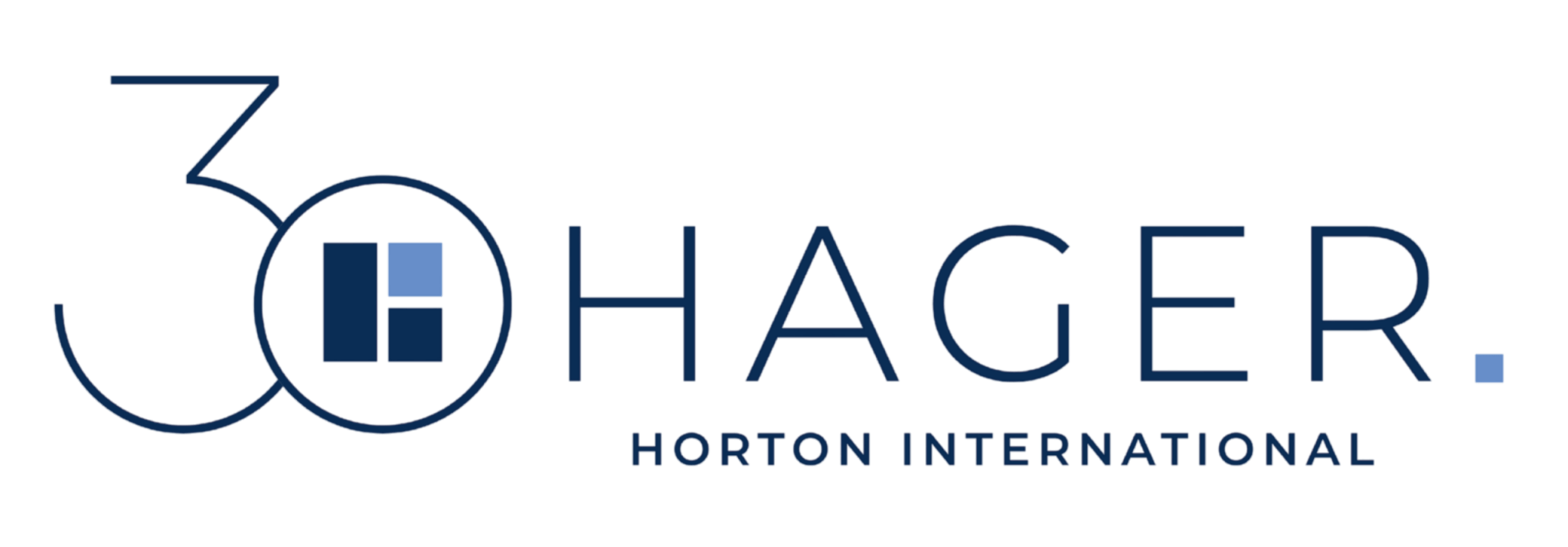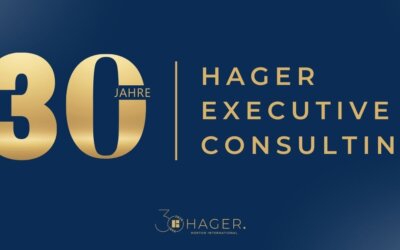
Why precision medicine must be there for everything – and what remains of the pandemic
Genome researcher Prof Dr Alexander Dilthey is investigating how advances in genome sequencing technology (Next Generation Sequencing, NGS for short) can be used to generate biological and medical knowledge. In conversation with
Dr Markus Neumann (HAGER Executive Consulting) will explain future scenarios for the pandemic occurrence of infectious diseases and the opportunity to revolutionise not only the fight against multi-resistant germs in hospitals through genome sequencing.
Dr. med. Markus Neumann:
The coronavirus pandemic has demonstrated the importance of genomic infection medicine on a broad scale. In a pilot project at the University of Düsseldorf, you and your team were able to uncover infection clusters of the virus using NGS sequencing, i.e. by analysing genetic material quickly and effectively, and thus improve the tracing of chains of infection.
Prof. Dr. Alexander Dilthey:
Genome sequencing can be used to break down chains of infection more effectively. During the pandemic, we were able to gain a completely new perspective on the spread networks of pathogens. This is an insight that will be of strategic importance in the future. The biggest mistake would be to assume that things couldn’t get worse – after the pandemic is before the pandemic. However, we are better prepared with the new NGS technologies.
Dr. med. Markus Neumann:
The SARS-CoV-2 coronavirus was identified within just a few weeks. This is the fastest time ever for a virus, which is like a technological miracle.
Prof. Dr. Alexander Dilthey:
The identified genome sequence of the virus was used to produce the vaccine. This worked phenomenally well in Germany and America. The fact that we had a vaccine so quickly after the virus emerged is also directly attributable to developments in genome sequencing. Nevertheless, during the pandemic there was a strong focus on the highly regarded diagnostic methods and less on innovations in genome sequencing.
Dr. med. Markus Neumann:
The microbiome, i.e. the entirety of all microorganisms that colonise humans, can officially have a complex impact on the immune system, metabolism and hormone system. How useful would it have been to include its mechanisms of action in the coronavirus pandemic?
Prof. Dr. Alexander Dilthey:
In terms of personalised medicine, which accesses data generated from sequencing, this would indeed have been enormously forward-looking. It is possible that the microbiome has an influence on the course of coronavirus diseases or the likelihood of becoming ill.
The new possibilities of sequencing open up a world in which science has an even better causal understanding of microbiomes, for example the role of fungi in their interaction with bacteria. The microbiome is already at the centre of cancer immunotherapy. And we know that they are linked to the development of infectious diseases.
Dr. med. Markus Neumann:
What realisation will remain?
Prof. Dr. Alexander Dilthey:
The key realisation beyond the pandemic is that it would be important and sensible to incorporate genome sequencing into standard diagnostics. We need to get there. Take septicaemia (‘blood poisoning’), for example. In this challenge, which can arise in various infectious diseases, the question of which pathogen is the cause and how best to combat it is important. It usually takes twelve to 48 hours for the results of a blood sample to be available. This wastes valuable time, as every hour of delay increases mortality. In the new world of genomic infection medicine, the entire genetic material from the blood would be sequenced. With NGS technology, the results can be available after just six hours.
In some cases, the data generated also provides information about antibiotic resistance. Targeted therapy could thus be initiated much more quickly. I also see a revolution in the fight against hospital germs. Here, pathways within a hospital – and also between different hospitals or doctors’ surgeries – can be quickly confirmed and appropriate measures can be introduced.
Dr. med. Markus Neumann:
The latest sequencing technologies will also change countless fields of research in the life sciences. Could there soon be a kind of construction kit or modular kit for clinical routine to customise treatments?
Prof. Dr. Alexander Dilthey:
NGS diagnostics is indeed a revolutionary tool for the treatment and prevention of diseases that can take into account individual differences in genes, lifestyle and environment. This approach to precision medicine will make it possible to predict exactly which treatment and prevention strategies will be successful for a particular disease and for which groups of people. Pandemic events of infection can be reliably recognised at an early stage and their spread could be prevented. A ‘modular system’ for routine clinical practice would certainly be possible. But there is still a long way to go. For one thing, analysing data and interpreting findings is extremely complex. Without software and algorithms, the data cannot be deciphered.
It also requires in-depth expertise from specialised personnel. One of the biggest challenges is actually the management of data, i.e. the preservation, security and analysis of the huge amount of data. We also need qualitative standards as well as ethical and legal guidelines on how to deal with planned incidental findings when analysing the genome, for example. Furthermore, the question of how the costs will be covered by health insurance companies has not yet been clarified. However, the first steps towards the widespread use of NGS technologies have been taken and it is to be hoped that they will soon find their way into routine medical diagnostics.
Dr. med. Markus Neumann:
Where are there still obvious deficits?
Prof. Dr. Alexander Dilthey:
We need to work on increasing sequencing capacity in Germany. The future belongs to networked diagnostics, in which the various medical technology systems exchange data with each other, whether antibody data or the genetic profile of a patient. There is still a lot of room for improvement when it comes to the possibilities of data integration; the Anglo-Saxon countries are already much further ahead in this respect. What we need are modern concepts for the protection of data. The aim is to facilitate translation (‘from the laboratory bench to the bedside’), i.e. new insights from research should be evaluated more quickly for their clinical benefit and safety and made available to patients.
Dr. med. Markus Neumann:
HAGER Executive Consulting fills key positions to support this translation through to the commercialisation of new drugs and solutions. Manufacturers of pharmaceutical products and medical devices, whether medium-sized companies or traditional global players, are under enormous pressure to deliver quality and efficiency – competition is fierce and the pressure to innovate is high. Against this backdrop, the battle for talent is fierce in Germany.
Prof. Dr. Alexander Dilthey:
In the USA and the UK, pharmaceutical and biotech companies are extremely attractive employers, and a large proportion of graduates in the relevant disciplines aspire to work there. Artificial intelligence in the development of new drugs, interdisciplinary work and big data volumes that provide usable knowledge are all highly attractive to young talent.
The pharmaceutical industry in Germany can only catch up here. Research departments need data scientists and bio data scientists with an affinity for and understanding of personalised medicine, algorithms and empirical data. Empiricism, the introduction of data and medicine are increasingly growing together in the development of new medicines. If these skills are not available within the company, they must be brought on board through joint work with orthogonal biopharma players or academic institutes. Collaboration is essential for a strategic position in a highly complex knowledge ecosystem such as this. Otherwise, in the worst case, you lose international connection.
‘Next generation sequencing is the only logical step towards modern precision medicine.’
Prof. Dr. Alexander Dilthey, Genomforscher
References
¹ Prof. Dr. Alexander Dilthey,
Born 1983, Professor of Genomic Microbiology and Immunity at Heinrich Heine University Düsseldorf. Specialisations: Bioinformatics, big data analytics and sequencing. Founded companies in Oxford/UK and Germany. The distinguished genome researcher was a sought-after expert during the coronavirus pandemic. At the Düsseldorf University Institute for Medical Microbiology and Hospital Hygiene, he heads a highly regarded coronavirus sequencing project. The genetic fingerprint can be used to trace chains of infection (‘coronavirus screening’).
Translated with www.DeepL.com/Translator (free version)
² Dr. med. Markus Neumann,
HAGER Business Unit Head of Lifesciences & Healthcare. Several years as a clinical doctor. Senior manager in the life sciences and healthcare sector for well-known companies in Germany and abroad. Member of the Board of the German Healthcare Alliance at the Federation of German Industries (BDI) until 2019.
³ Next Generation Sequencing
(NGS) refers to improved technologies for DNA sequencing. A complete human genome can be sequenced within one day. In contrast to classic sequencing (according to Sanger), several hundred million fragments in a sample are sequenced simultaneously. Changes in the sequence, such as mutations, are detected. The time and costs involved are much lower in comparison.
NGS technologies have already been used for several years in research, clinical genetics, microbiology and oncology. Their relevance in the early detection and control of infectious diseases and pandemics as well as in oncology is proven.



